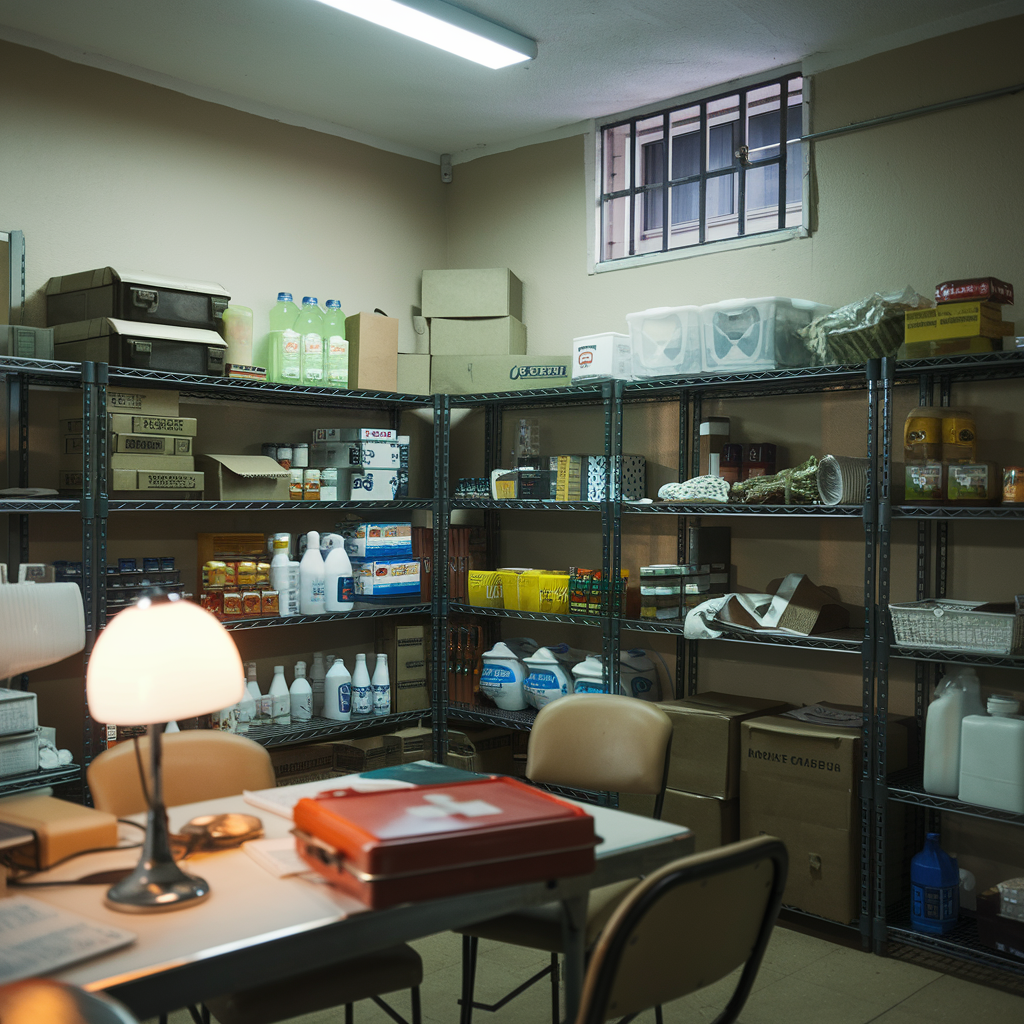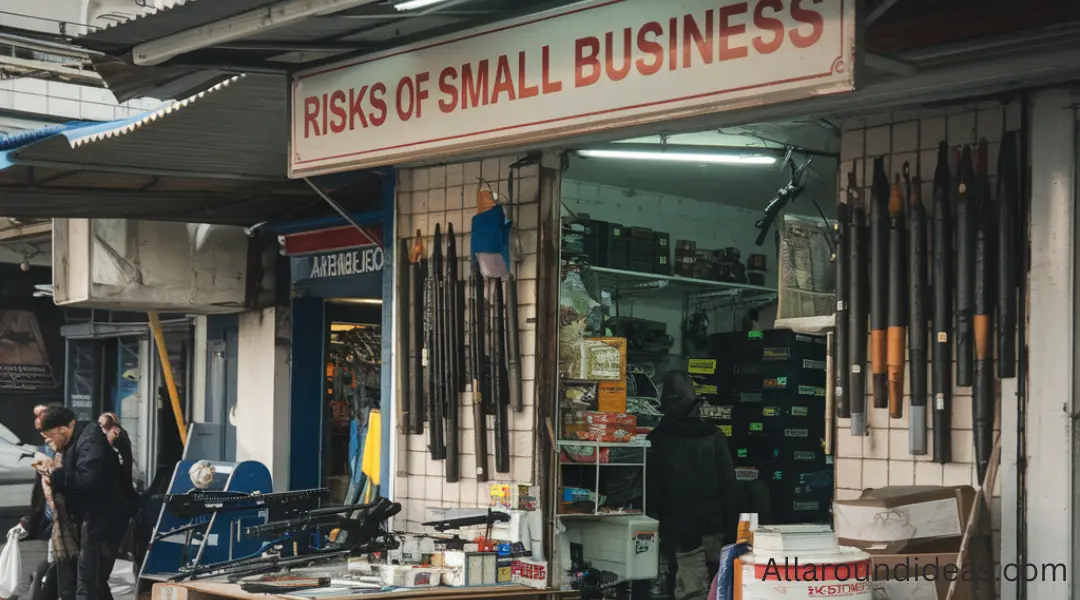Escape from Tarkov, developed by Battlestate Games, has gained a reputation as one of the most intense and immersive multiplayer first-person shooters. Set in the fictional Norvinsk region, the game combines survival mechanics, role-playing elements, and an intricate economy that enables players to engage in small business ventures. While this economic aspect offers unique opportunities for profit and collaboration, it also presents a plethora of risks. In this article, we’ll delve deep into the various risks associated with running a small business in Tarkov, exploring how players can navigate these challenges to thrive in a treacherous environment.
If you want to know that How Many Hours are in a Month then checkout our last blog post.
Understanding the Tarkov Economy
To effectively manage risks of small business in Tarkov, it’s essential to grasp the intricacies of its economy. The game features a complex marketplace where players can buy, sell, and trade items. Currency in Tarkov is measured in roubles, and players can acquire wealth through various means—raiding, trading with NPCs (known as traders), and exchanging items with other players.
The economy is highly dynamic, influenced by player actions, supply and demand, and in-game events. Items that are valuable today may lose their worth tomorrow due to market saturation or changes in gameplay mechanics. This volatility is a double-edged sword, presenting both opportunities for profit and risks of loss.

If you want to know that How Many Hours are in a Month then checkout our last blog post.
The Primary Risks of Small Business in Tarkov
1. Player Interaction and PvP Combat
One of the most significant risks in Tarkov is the potential for player-versus-player (PvP) combat. As players venture into the game’s maps to gather resources or conduct trades, they can easily become targets for others looking to loot valuable items. Engaging in trade in high-traffic areas or during busy in-game events increases the likelihood of hostile encounters.
Strategies for Mitigation:
- Choose Trading Locations Wisely: Opt for less frequented areas to reduce the risk of ambush. High-value items can be sold in quieter spots, albeit at potentially lower prices.
- Team Up with Other Players: Forming alliances with other players can enhance security during trades. A group is often more intimidating than a lone trader, dissuading would-be attackers.
- Employ Stealth Tactics: Utilize stealth to evade detection when transporting valuable goods. Learn the terrain and use cover to minimize exposure.
2. Looting and Inventory Management
Inventory management is critical for running a risks of small business in Tarkov. Players must decide what items to keep, sell, or discard, which can become overwhelming. Mismanagement can lead to an overloaded inventory, hampering movement speed and making players more susceptible to attacks.
Strategies for Mitigation:
- Prioritize High-Value Items: Focus on collecting items that are in high demand and have substantial resale value. Regularly check market trends to identify what’s currently popular.
- Regular Inventory Assessments: Conduct routine evaluations of your inventory to maintain organization and efficiency. This can help in making quick decisions about what to keep or sell.
- Utilize Secure Storage: Take advantage of in-game storage options to manage excess items. Proper storage solutions allow players to keep valuable items safe from potential losses.
3. Market Fluctuations
The in-game economy is susceptible to fluctuations based on player behavior and game updates. Items that are highly sought after one day may plummet in value the next. This unpredictability can severely impact profitability, especially for small businesses reliant on specific items.
Strategies for Mitigation:
- Stay Informed: Engage with community forums, follow patch notes, and monitor market trends to stay ahead of fluctuations. Knowledge is power in a volatile market.
- Diversify Your Inventory: Avoid specializing in a single item type. A diversified inventory can help hedge against sudden market drops in specific items.
- Adopt Long-Term Strategies: Consider holding onto items that may appreciate over time rather than immediately selling them. This approach requires patience but can yield significant rewards.
4. NPC Trader Relationships
Building and maintaining relationships with NPC traders is vital for obtaining better prices and access to exclusive items. However, these relationships can be jeopardized by poor trading practices or failing to complete quests that enhance reputation.
Strategies for Mitigation:
- Focus on Completing Quests: Engaging in quests for traders can enhance reputation and unlock better deals. Completing these quests should be a priority for any trader.
- Engage in Regular Transactions: Consistent trading with NPCs can help maintain positive relationships. This can lead to favorable pricing and exclusive inventory access.
- Monitor Reputation Levels: Keep track of your reputation with each trader. Avoid actions that could lead to a decrease in reputation, which could adversely affect future trades.
5. Time Investment and Opportunity Cost
Running a small business in Tarkov can be time-consuming. Players may spend hours gathering items, crafting, and managing trades, which can lead to opportunity costs. While focusing on trading, players may miss out on more lucrative activities like raiding or completing quests.

If you want to know that How Many Hours are in a Month then checkout our last blog post.
Strategies for Mitigation:
- Set Clear Goals: Define specific trading goals, such as accumulating a certain amount of roubles or acquiring specific items. This focus can streamline efforts and make the process more rewarding.
- Balance Your Activities: Allocate time between trading and other in-game activities to maximize enjoyment and profit. Finding a balance can help mitigate the potential for burnout.
- Automate Where Possible: Utilize in-game features or community tools to automate repetitive tasks. This can free up time for more engaging gameplay elements.
6. In-Game Events and Updates
Tarkov is frequently updated with new content, balancing changes, and special events that can alter the game’s landscape. These updates may affect item values, trader inventories, and overall gameplay mechanics, introducing new risks of small business in tarkov.
Strategies for Mitigation:
- Stay Updated on Changes: Regularly check official announcements and patch notes to adapt strategies quickly. Being informed about changes can help traders adjust their approaches.
- Experiment with New Mechanics: Take time to explore and test new gameplay mechanics introduced in updates. Understanding these changes can provide a competitive edge.
- Engage with the Community: Join forums and social media groups to share insights and strategies with other players regarding new updates. Collaborative learning can yield valuable information.
7. Risk of Losing Investments
In Tarkov, death can lead to the loss of valuable items and gear. If a player is killed while transporting goods or during a trade, they risk losing everything they have worked hard to acquire. This risk is amplified when dealing with high-value items.
Strategies for Mitigation:
- Utilize Insurance Systems: Take advantage of the in-game insurance system to recover lost items after death. While not guaranteed, it can help mitigate total loss.
- Conduct Safe Trades: Always assess the risks involved in trading high-value items. Consider waiting for safer opportunities to conduct significant transactions.
- Create Backup Plans: Store valuable items in a secure location or distribute them across different characters to reduce the impact of potential losses.
8. Market Saturation and Competition
As players engage in trading and crafting, certain items can become oversaturated in the market, leading to a decrease in their value. Additionally, fierce competition from other players can make it challenging for small businesses to thrive.
Strategies for Mitigation:
- Identify Niche Markets: Look for less popular items or crafting materials that may be in demand but not widely traded. Focusing on niche markets can provide unique profit opportunities.
- Adapt to Market Conditions: Regularly analyze the market and adjust inventory and pricing strategies accordingly. Flexibility is crucial in a competitive landscape.
- Develop Unique Selling Points: Differentiate your business by offering unique items or services that competitors may not provide. This could include rare crafted items or bundled offers.
9. Psychological Stress and Burnout
The competitive nature of Tarkov can lead to psychological stress for players, especially those running small businesses. The constant threat of losing hard-earned items and the pressure to stay ahead can contribute to burnout.
Strategies for Mitigation:
- Take Breaks: Regularly stepping away from the game can help prevent burnout. It’s essential to maintain a healthy balance between gaming and other life activities.
- Engage in Collaborative Play: Playing with friends or joining a community can help alleviate stress. Sharing experiences and strategies can make the game more enjoyable.
- Set Realistic Expectations: Understand that losses are a part of the game. Setting achievable goals can help maintain motivation and reduce frustration.
10. Regulatory Changes and Game Mechanics
As the developers implement changes to game mechanics or introduce new regulations, small businesses may face unforeseen challenges. New systems or changes to existing ones can disrupt established trading practices.
Strategies for Mitigation:
- Stay Engaged with Development News: Follow the developers’ updates and announcements to anticipate changes. Being proactive can help prepare for shifts in the game.
- Participate in Testing: Engage in beta testing or provide feedback to developers. This involvement can lead to a better understanding of upcoming changes and their potential impacts.
- Adapt Quickly: Be prepared to adjust your business strategies in response to new regulations or changes in gameplay. Flexibility and adaptability are key to thriving in Tarkov.

If you want to know that How Many Hours are in a Month then checkout our last blog post.
Conclusion
Running risks of small business in Tarkov is both a thrilling and perilous endeavor. The intricate economy, combined with the constant threats from other players and the ever-changing game landscape, creates a unique environment filled with challenges. Understanding the various risks involved—ranging from PvP encounters to market fluctuations—is crucial for success.
By employing effective mitigation strategies, players can navigate these challenges, maximizing their profits while minimizing potential losses. The key to thriving in Tarkov lies in adaptability, strategic planning, and community engagement. With careful consideration and informed decision-making, players can carve out their niche in one of gaming’s most intense survival experiences, transforming the risks into opportunities for success. Whether you’re a seasoned trader or a newcomer exploring the economic landscape, understanding and addressing these risks will be vital for your survival and success in Tarkov.


